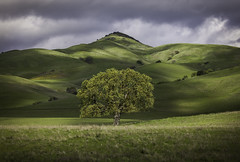Day Two of Hewitt Festival was a good deal better than Day One for two reasons.
First, while my crime fiction workshop has still to teach me anything new about writing (I’m now convinced that the best and only way to learn about writing is just to do it), it has revealed a great deal about the human condition. As we talked about characters’ desires, two themes kept popping up: control and affirmation. As human beings, we long for acceptance, for others to acknowledge that we matter, that we’re here for a reason and that people like having us here. We also long for control, for power, for people to do things our way and for ourselves to mind ourselves. Perhaps these two desires are so powerful because they are so elusive, yet not so impossible as to be out of reach. We achieve affirmation through so many shallow means, yet so often lack it from those who truly matter. We work so hard to control others often because we cannot control ourselves. Perhaps control even stems from a desire for affirmation as we strive to make others like us or to make ourselves likeable to others. The point is, no character, no human being, is without these two desires, sometimes working together, sometimes working against each other. They are purpose and power, love and lust, yin and yang, salvation and sin. They are humanity.
The second reason for today’s marked improvement is The Play of the Book, a performance mixing dramatic monologues, music, rhythmic percussion, poetry, humor, sadness, and the second-largest pencil sharpener I’ve ever seen. Starring five talented musicians and one writer, the play follows the ramblings of Ian Sansom’s mind as he goes about his daily business of creating a book. The Play of the Book throws off any semblance of realism or chronological plot, instead relating almost at random the experiences of a writer, some of which I can relate to and all of which I will most likely encounter someday. One statement that struck me was that the writer never hears applause; by the time someone reads his work, he has already moved on to another work. Unlike the actor or the musician or the athlete, the writer never experiences immediate praise.
Am I okay with that?
On some level, it’s a sad thought. I can’t enter the mind of the reader and enjoy each moment of surprise, each funny line, each broken heartstring along with my audience. I can never truly share their experience. But at the same time, I feel very satisfied reaching the end of a piece, looking back, and saying, “I finished this, and I like it.” And if I like it, chances are people will read it, and there’s even a slight chance I’ll get feedback. But it’s the moment after creation, the point where I can see all I have made and say, “It is good,” that makes writing worth it for me.
Besides, I’ll be sharing an experience with an audience tomorrow. Let’s hope and pray it’s an experience worth sharing.







[…] of Ireland, the absurd legend, a particularly mushy post, my encounter with the natives, and a metaphysical discussion on the human condition and on writers that would do Chris Warman proud. Also, because that bit of shameless plugging isn’t enough, here’s my blog, The Nerd […]